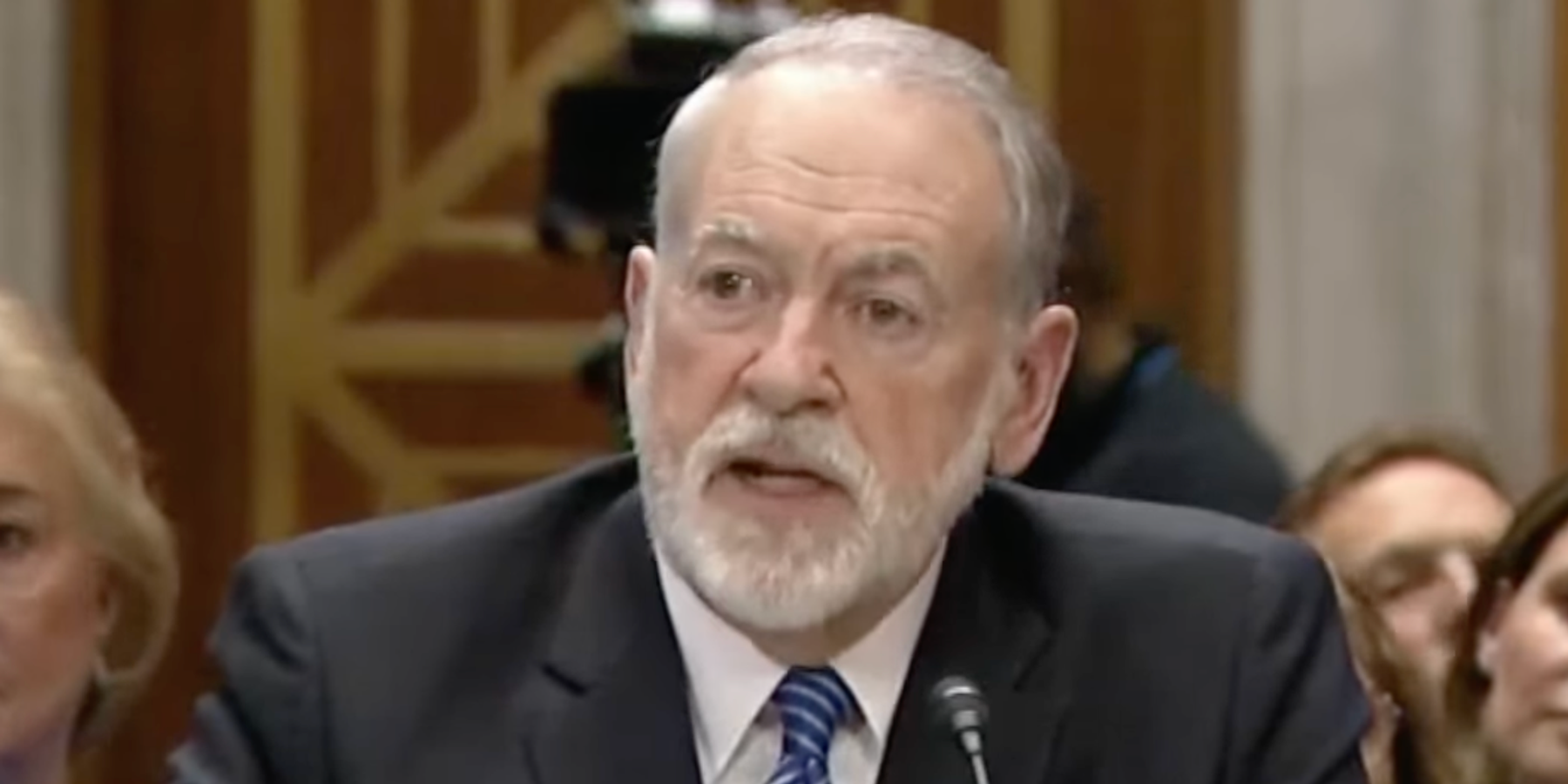Former Arkansas Governor and presidential candidate Mike Huckabee, who has advocated for Israel’s annexation of the West Bank and describes himself as an “unapologetic, unreformed Zionist,” was grilled by members of the Senate Foreign Relations Committee about whether his staunch pro-Israel personal views would compromise his work representing the United States government in Jerusalem.
Huckabee’s confirmation for U.S. ambassador comes amid a broken ceasefire and a renewed Israeli bombing campaign and ground incursion in Gaza — all with the support of the Trump administration, according to recent interviews by U.S. envoy Steve Witkoff.
Huckabee emphasized during the hearing that the president’s views would be prioritized in his new role if confirmed. “I am not here to articulate or defend my own views or policies, but to present myself as one who will respect and represent the President whose overwhelming election by the people will hopefully give me the honor of serving as ambassador to the State of Israel,” Huckabee declared in his opening statement.
Some senators present, including Ted Cruz (R-Texas), were pleased by Huckabee’s nomination, especially in light of his career-long pro-Israel stance. “You’re going to do a fantastic job, and I’m very happy to see your name for this position,” Cruz said.
Senators Jeff Merkley (D-Or.) and Chris Van Hollen (D-Md.), in contrast, were the most critical.
A “concern that I've had [regarding the war on Gaza] is the use of humanitarian supplies as [political] leverage, in which they've been restricted time, time, and again under international law. This is generally considered an illegitimate strategy of war,” said Sen. Merkley. “Have you had any concerns at all about Israel restricting the supplies of food to Gaza?”
Huckabee’s response was that Israel “provided 700 trucks a day,” and that “there have been massive supplies,” to Gaza. While about 600 aid trucks were going to Gaza daily during much of the ceasefire, Israel had again cut all humanitarian aid off to the strip in early March, subsequently breaking the ceasefire wholesale on March 18.
“There's been extended periods where very few trucks at all have gotten in. And certainly we did have relief during the ceasefire, but we're now in a new phase of extremely restricted supplies,” Merkley parried, rejecting Huckabee’s assertions outright. “There’s been many, many international organizations that have reported on this, so I know you’re not unaware of it.”
Merkley pressed Huckabee about Trump’s repeatedly stated plan to move Palestinians out of Gaza. Huckabee in turn denied Trump wanted to displace Gazans. “The president has never said that. He has never spoken about forced displacement.”
While Trump and his officials have occasionally walked back suggestions that Palestinians be permanently displaced, Trump has consistently asserted that Gazans must leave the strip entirely for his “Riviera” plan to work. At one point, he even suggested Palestinians could choose whether to leave, but any departures would be permanent.
Senator Chris Van Hollen asked Huckabee if he believed in the collective punishment of the Palestinian people, which he suggested Israel was carrying out. Huckabee said he did not.
“[Israeli] Finance Minister Smotrich suggested [that] it might be justified and moral to starve two million Palestinians in Gaza as part of a strategy [regarding] the hostages. Simple question: do you disagree with Finance Minister Smotrich?” Dodging the question, Huckabee responded that “an ambassador doesn't get to argue with the people of the country,” and that his role would be to represent Trump’s views.
Van Hollen also asked Huckabee about his support for the West Bank annexation by Israel. "I have previously supported it. Yes, sir. But it would not be my prerogative to make that the policy of the president,” Huckabee replied.
Huckabee has previously called for the West Bank to be referred to as “Judea and Samaria,” which is how Israel’s Likud party, long committed to the West Bank’s annexation, refers to the Israeli-occupied territory. U.S. Lawmakers have proposed the same name change in congressional legislation. Foreign Affairs Committee Chair Rep. Brian Mast has even instructed GOP committee staffers to comply with it.
Huckabee did not clarify whether he stood by the position when pressed by Van Hollen.
At the hearing, Huckabee also expressed support for Trump’s “maximum pressure” campaign against Iran, saying "Iran cannot have a nuclear weapon and it is better to bankrupt them than it is to bomb them.”
Other lawmakers and groups have opposed Huckabee’s nomination, describing his Israel positions as too extreme. In addition to claiming that “there’s plenty of land” for Palestinians to go to in other Middle Eastern countries, Huckabee has said “there’s really no such thing as a Palestinian” during his own unsuccessful presidential campaign.
“Huckabee’s positions are not the words of a thoughtful diplomat — they are the words of a provocateur whose views are far outside international consensus and contrary to the core bipartisan principles of American diplomacy,” Rep. Jerry Nadler (D-NY), who is Jewish, said in a Monday statement ahead of the hearing. “There is no need for more extremism, and certainly not from the historic ambassador’s post and behind the powerful seal of the United States.”- On Middle East, will Trump follow his instincts or hawkish advisers? ›
- Trump eyeing hawks and neocons for top foreign policy/NatSec roles ›
- Huckabee admits Israel is blocking food to people he once said don’t exist | Responsible Statecraft ›
- Is Mike Huckabee working to keep Netanyahu in power? | Responsible Statecraft ›
- Even Mike Huckabee is fed up with Israel | Responsible Statecraft ›
- Huckabee: US to support 12 more GHF aid sites in Gaza | Responsible Statecraft ›
- US diplomat accuses Belgian officials of anti-semitism on X | Responsible Statecraft ›
















